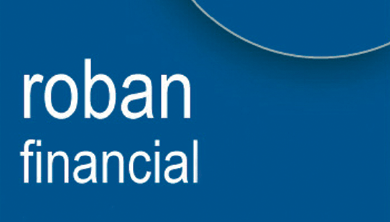Minister for Finance, Paschal Donohoe T.D., and Minister for Public Expenditure and Reform, Michael McGrath T.D., delivered the details of Budget 2023., yesterday 27th September.
Jim Power, Economist summarised it by stating; “Budget 2023 can accurately be described as a very expansionary budget that is intended to address the current challenges facing the economy, but particularly the ‘cost-of-living’ challenges for business and households. “
As Jim writes in his budget summary for Aviva Life which I am sharing here; The global and domestic economic background against which Budget 2023 was prepared and delivered was very challenging. Global economic policy makers, political leaders and business leaders are facing immense challenges due to a combination of rapidly rising inflation; ongoing supply-chain difficulties; rapidly rising interest rates; intense global geo-political uncertainty; and a much more uncertain global economic outlook.
The war in Ukraine has compounded pre-existing challenges emanating from the pandemic, and the consequences are proving very challenging. To date, Ireland has proved relatively immune to the global growth pressures, but this is starting to change and it seems inevitable that Irish economic activity will ease over the coming months.
The key issues that shaped Budget 2023 include:
- The cost-of-living crisis.
- The escalation in the costs-of-doing business.
- An intensely uncertain global economic outlook and rising interest rates.
- A very tight labour market.
- Serious problems in the provision of childcare.
- The ongoing escalation in the cost of housing for both renters and owner-occupiers.
- Addressing climate change and ensuring the necessary incentives to change behaviour are in place. This is particularly relevant for the transport sector.
Budget 2023 contained two distinct elements – a package of once-off measures to alleviate the cost-of-living pressures and the normal increase in the various elements of expenditure and taxation which carry forward to future years.
The key elements included:
- A payment of €600 to offset rising electricity bills is set to be paid to every household. It will be paid in instalments, with one before Christmas and the other two in the new year. Cost of this measure is €1.2 billion.
- Double child benefit payment in November.
- A once-off double week “Cost of Living Support” payment to social welfare recipients in October – this will include pensioners, carers, people on disability payments and jobseekers.
- Additional €500 for those receiving the Working Family Payment to be paid in November.
- Additional €500 for Carer’s Support Grant recipients to be paid in November.
- Once-off payment before Christmas of €200 to recipients of the Living Alone Allowance.
- Once-off payment of €500 to those who qualify for Disability Allowance, Invalidity Pension and the Blind Pension to be paid in November.
- The normal Christmas Bonus will be paid in early December for social welfare recipients.
- €12 per week increase for every recipient of a social protection payment.
- Working Family Payment thresholds rise by €40 per week with Qualified Child Increase for under 12s up to €42 per week and for over 12s to €50 per week.
- Qualifying income threshold for the Fuel Allowance will increase (from 1 January 2023) from €120 to €200 above the relevant rate of the State Pension Contributory. For over 70s, the weekly Fuel Allowance means limit will be extended to €500 for single people, €1,000 for couples.
- Domiciliary Care Allowance rate rises by €20.50 to €330 per month and will be available to parents of babies who have to remain in hospital for six months.
- Top-up payment to participants on the Community Employment, TÚS and Rural Social Scheme rises by €5 to €25 per week.
On the Income Tax side:
- An increase of €3,200 in the income tax standard rate cut-off point for all earners, from €36,800 to €40,000 for single individuals and from €45,800 to €49,000 for married couples / civil partners with one earner.
- An increase of €75 in the Personal Tax Credit from €1,700 to €1,775.
- An increase of €75 in the Employee Tax Credit from €1,700 to €1,775.
- An increase of €75 in the Earned Income Credit from €1,700 to €1,775.
- An increase of €100 in the Home Carer Tax Credit from €1,600 to €1,700.
On USC:
- An increase of €1,625 to the 2 per cent rate band ceiling from €21,295 to €22,920
- The reduced rate of USC concession for medical card holders is being extended for a further year.
For Housing/Rent:
- Help-to-Buy scheme will continue, at current rates, until the end of 2024.
- Taxpayers paying rent on their principal private residence will receive a new rent tax credit valued at €500 per year from 2023 – it may also be claimed in respect of rent paid in 2022. This move will just stimulate demand in a market where supply from private landlords is diminishing.
- Amount landlords can claim in pre-letting expenses per premises is being doubled to €10,000 and reducing the period for which a premises must be vacant from twelve to six months.
- A new Vacant Homes Tax is being introduced for residential properties which are occupied for less than 30 days in a 12-month period. It will be charged at a rate equal to three times the property’s existing basic Local Property Tax rate.
- A 10 per cent levy is being introduced on poured concrete and concrete blocks from April 2023 and is expected to raise €80m annually. It has been introduced to raise funds to address issues with mica.
On Childcare:
- Funding will be provided to support a reduction of up to 25 per cent in the weekly fee for those using the National Childcare Scheme – this should result in up to €175 a month savings for parents in 2023.
For SMEs:
- Temporary Business Energy Support Scheme – once eligibility criteria are met, 40 per cent of an organisation’s energy increases will be covered, subject to a monthly cap of €10,000 per month per business.
- Non-cash benefits or rewards to workers (without the payment of income tax, PRSI and USC) increased by €500 to €1,000 and can be used in the current tax year.
- 50 per cent excise relief to independent small producers of cider and pear cider (‘perry’).
For Agriculture:
- Five agricultural tax reliefs due to expire this year – the Young Trained Farmer and Farm Consolidation Stamp Duty Reliefs, the Farm Restructuring CGT relief, and the Young Trained Farmer and Registered Farm Partnership Stock Reliefs – will be extended. Talks are ongoing at EU level as to the duration of these extensions.
- A new scheme will help provide accelerated capital allowances to farmers for the construction of modern slurry storage facilities.
- Farmers can apply for the new Energy Support Scheme that will allow for payments toward electricity costs of up to €10,000 per month.
For Education:
- Student Contribution Fee cut by €500 for eligible families earning between €62,000 and €100,000.
- Income limit to qualify for a 50 per cent reduction in contribution fees under SUSI will be increased from €55,240 to €62,000.
- All SUSI maintenance grants will be increased by between 10 per cent and 14 per cent in September 2023.
- Once-off €1,000 increase to the post graduate fee contribution grant.
- Post-Graduate Fee Contribution Grant for eligible students of €3,500 will increase by €500.
- An extra €10 million for further and higher education institutions to help with rising costs.
- Primary school books will be free.
For Private and Public Transport:
- Excise reduction of 21c per litre (petrol), 16c per litre (diesel) and 5.4c (marked gas oil) extended until 28 February, 2023
- Carbon taxes on petrol and diesel will go up from €41 to €48.50 per tonne from 12th October resulting in an increase of just over 2c per litre of petrol and diesel. However, the Government says the price at the pumps should not go up because it is offsetting this with a reduction (from 2 per cent per litre to zero) of the National Oil Reserves Agency (NORA) levy.
- The 20 per cent public transport fare reduction and the Youth Travel Card discount of 50% on all operators’ services extended to end of 2023.
In conclusion Budget 2023 is an incredibly large fiscal package of €11.4 billion in total. It is designed to address once-off pressures from the cost-of-living crisis; the external uncertainties; rising interest rates and the political reality that exists in Ireland today.


